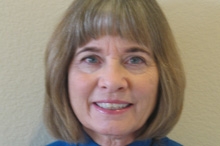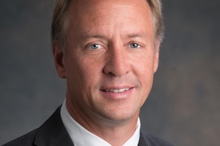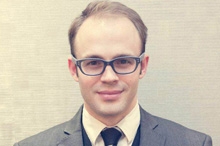Champions of Change Blog
Grassroots Collaboration Overcomes Gun Violence
Posted by on April 8, 2014 at 8:50 AM EDT
Teresa A. Crawford is being honored as a Gun Violence Prevention Champion of Change.
On a chilly desert morning January 19, 2013, about one month after the mass shooting of 20 children and six adults at Sandy Hook Elementary School, I joined a small group of parents, educators, students and community organizers outside a shooting range in Las Vegas that advertises “shotgun weddings.” We gathered, not to protest the range’s unusual take on matrimony, but signal our resolve to the state legislators who drove past us on their way to a closed-door NRA lobbying session at the facility.
Just two weeks before Nevada’s biennial legislative session, time was short to convince lawmakers to pass a strong background checks law to stop private gun sales to dangerous possessors and strengthen mental health reporting. Nevada consistently ranks high on every index of gun violence, especially for women killed by intimate partners, and its gun laws get an F for weakness. Our message: The time to act is now! Most of the lawmakers drove past our signs with eyes front, but two assemblywomen approached to offer a box of doughnuts and chat with us. They turned out to be heroes who championed the background checks bill, SB 221, introduced by a courageous state senator, which passed both legislative chambers.
That day launched dozens of events to educate our community about the toll of gun violence in Nevada and urge state and federal lawmakers to pass new background checks laws. As a retired nurse, I feel that gun violence is a major public health challenge. We rallied at the offices of our senators and governor with handmade signs, held press conferences and vigils and shared personal stories. We phone banked our lists to ask supporters to call their lawmakers—which generated hundreds of contacts—wrote letters to the editor, asked questions at congressional Town Halls and brainstormed at grassroots trainings.
Ultimately, we delivered more than 12,000 signatures to both U.S. Senators and the Governor. We know from public interaction that the five Nevada-specific polls showing strong majority support for a background checks law accurately reflect the people’s will. Even gun owners support expanded background checks. The governor, pressured by the gun lobby, vetoed the bill.
That evening, we held a sunset vigil to thank our hero legislators and remember our losses. Our hearts were broken because the veto came exactly six months after the Sandy Hook tragedy. Because of the veto’s tragic timing, that event got full network coverage.
Three days before our first event, on January 16, 2013, President Obama released the administration’s plan to reduce gun violence in America and initiated 23 executive actions. The president’s leadership inspired us to form a citizen’s movement for the common goal of safer schools and communities. President Obama’s insistence that everyone affected by gun violence deserves a vote echoed long after the 2013 State of the Union speech ended.
Our unofficial coalition includes Organizing for Action, ProgressNow Nevada Action and Moms Demand Action for Gun Sense in America, now merged with Mayors Against Illegal Guns, plus our networks of friends and family. Our work continues in 2014 with a press conference, media interviews, a strategy summit and continued Town Hall dialogues with our elected representatives. We are preparing for the next legislative session in 2015. Our resolve is even stronger than it was on that cold morning over a year ago.
Teresa A. Crawford is the Organizing for Action Gun Violence Prevention Lead for Nevada, a board member for ProgressNow Nevada and a retired nurse in Henderson, NV.
Learn more aboutYoung Americans Building Bridges to Eradicate Gun Violence
Posted by on April 8, 2014 at 8:43 AM EDT
Sarah Clements is being honored as a Gun Violence Prevention Champion of Change.
I remember sitting in lockdown for hours, reading news that the shooting happened only miles away at Sandy Hook, my former elementary school. I remember waiting to hear whether my mother, a second grade teacher at the school, survived. She did. And I remember the feeling deep down, even hours after the shooting happened, that the only way I’d be able to move forward was if I advocated for things to change.
About a month later, my father and I traveled to Washington, D.C. to join 6,000 other Americans marching for gun reform. I was introduced to the vast, diverse, and courageous movement of individuals working for safer communities. Back home, I joined the Newtown Action Alliance (NAA), a grassroots non-profit working for legislative and cultural change to reduce gun violence. Yet, I was one of the only students getting involved, and this incredible, positive outlet helping me transform my pain into positive action was invisible to my peers. In response, I formed and continue to lead Jr. Newtown Action Alliance, a branch of NAA that gives students the opportunity to raise their voices and make change.
At first, Jr. Newtown Action Alliance only had outreach in Newtown. We held letter writing events in town and mostly focused on helping our town heal from the shooting. Soon, we started networking with other young people in the region and state, and we began travelling every three months to Washington, D.C. to lobby members of Congress. Members also travelled around the country to hold workshops to teach students how to break down the issue of gun violence prevention.
This year, the goal of Jr. NAA is to build bridges between urban, suburban, and rural youth to not only share our stories and experiences, but also to then use that knowledge, understanding, and source of empathy to strategize about how we can make our schools and communities safer together.
Last month, our members met with members of the group Harlem SNUG, a gang violence mediation and conflict resolution organization working for safer streets. Our stories were different, but at the same time, we all experienced gun violence, and that allows us to better understand the ground upon which the other walks.
Finally, I’m a Gun Violence Prevention Volunteer Lead at Generation Progress, the Millennial branch of the Center for American Progress. Our team facilitates a network of youth working on this and connected issues on the national level so that our movement is more efficient and so that the youth voice is front and center in this conversation. In February, we organized a national summit, and the three-day event brought more than 120 Millennials from 32 states to Washington, D.C. for intensive training on organizing and strategy for gun violence prevention. We are now creating the structure for this network and for a productive and efficient year of youth organizing.
As a Millennial, I will not back down. We are literally fighting for our lives; fighting for a most sacred and fundamental right: for children to grow up. Far too many of our friends' fates have teetered on the barrel of a gun, and America turns its back each time. We can no longer wait for the voice of a loved one to be muted before we exercise our own, for if I have learned anything since 12/14, it’s that the rights I have the privilege to possess are worthless unless I fight for others to have them, too; and that includes the right to living in a safe community.
Sarah Clements is a senior at Newtown High School and the Founder and Chairwoman of Jr. Newtown Action Alliance, a group of young people working to reduce gun violence through legislative action, cultural change, and bridge building between youth in different communities. She is also a Generation Progress Gun Violence Prevention Network Volunteer Lead.
Learn more aboutVoice for Change
Posted by on April 8, 2014 at 7:52 AM EDT
Pamela Simon is being honored as a Gun Violence Prevention Champion of Change.
Until January 8, 2011, gun violence was always something that happened to someone else. Like so many others, I glanced at the news reports of a shooting and moved on because I felt gun violence was something that would never touch my life. It happened to someone else's child, someone else's spouse, someone else's friend.
All of that changed one chilly Arizona morning in front of a local grocery store. I was on the staff of Congresswoman Gabrielle Giffords and the Congresswoman had just begun to talk with constituents at a Congress On Your Corner event. Suddenly, gunfire erupted. In less than 20 seconds, six people lay dead and 13 others—including Congresswoman Giffords and me— were wounded.
As my body and mind healed over the months that followed, I learned a lot about an issue that I previously had all but ignored. The numbers were staggering. 12,000 Americans are murdered with a gun each year. Countless other lives have forever changed by injuries caused by gun violence. The human cost includes traumatized family and friends, grief stricken loved ones and family members turned caregivers because of the damage inflicted.
For too long, silence has been the response from elected officials and individual citizens despite overwhelming evidence of the problem. However, I quickly learned that silence is not what we need in our nation.
Shortly after I retired from Congresswoman Giffords' congressional office in 2012, I heard the news of the mass shooting in a Colorado theater and it felt personal. The victims of gun violence were no longer somebody else. I was tied to them in a bond of terrible knowledge. The time for me to take on this taboo subject had arrived. I knew I had to use my story to be a voice for change. A few days later, I joined with other survivors from the Tucson tragedy to call on our leaders to address gun violence in our nation.
Over the months that followed, Mayors Against Illegal Guns brought together survivors of gun violence from around the country. As we told our stories, however painful, we found that there was healing in being part of the solution. We spoke out on the need for common-sense gun laws that would help save lives.
Over the past two years, I have worked to connect concerned citizens and survivors with organizations that can amplify their voices on gun violence prevention. I have been inspired and honored to work with the many groups that share our common goal of ending gun violence. I have had the privilege of speaking to our nation's leaders, members of Congress, state legislators, local elected officials, civic organizations, countless media interviews and hundreds of individual conversations with people who—like me—want a country that is free from gun violence.
Starting in Tucson, I have used each time that I have spoken to groups or the news media as an opportunity to challenge my own community to be part of our larger call for action. It has been exciting to work with citizens who have come together to work on gun violence prevention and who have produced significant change at the local level already. They in turn are engaging others.
Alone, I am one voice, but joining with so many others, we are breaking the silence and beginning to move toward meaningful change. I feel deeply honored to have been selected as a White House Champion of Change.
Pam Simon taught middle and high school for over two decades after which she served as Community Outreach Coordinator for Congresswoman Gabrielle Giffords. She was wounded during the Tucson shooting and has spent the past two years working on gun violence prevention.
Learn more aboutGun Violence Prevention: Crisis Intervention Through Mental Health Support Services
Posted by on April 8, 2014 at 7:42 AM EDT
Nosheen Hydari is being honored as a Gun Violence Prevention Champion of Change.
It’s 3 a.m. and I receive a call from our crisis line about an inner-city Chicago family with a teenage son who has threatened his mother with a weapon. It’s my job to assess the level of danger in the home. So, I immediately call the mother to understand her safety concerns. Next, I notify my on-call supervisor and together we develop a plan to reduce the level of threat and ensure the son gets to a safe place for a face-to-face assessment.
This is crisis intervention. And as a crisis therapist, I use my training to de-escalate the crisis and ensure the safety of all those involved. I go into some of the toughest neighborhoods in Chicago to meet people where they’re at, such as hospitals, residential and group home treatment facilities, and the detention center. This means that I listen to people’s stories—the stories that have led them into crisis. I see people in their most difficult times and offer compassion, validation and solution-focused attention at moments of deep vulnerability.
I’m a crisis therapist at Community Counseling Centers of Chicago (C4), a leading community mental health agency in Illinois that provides a wide range of mental health services, crisis intervention, prevention services, parent education, and substance use treatment to at-risk children, adults and families.
In my role, I provide crisis assessments for hundreds of Chicago children and adults in severe psychiatric distress. I am trained to make an immediate decision about an appropriate level of care for the person in distress, which is either inpatient psychiatric hospitalization or outpatient services.
Through early crisis intervention, we have the opportunity to disrupt a potential threat of violence from escalating into a serious incident of harm to someone. The earlier people call to report a crisis—the better chance there is of stopping an act of violence.
We can all make an impact in our communities by helping to increase the availability of mental health services and public education programs, and raising overall awareness. C4 offers a public-education program called Mental Health First Aid (MHFA). MHFA is an evidence-based, in-person training program that provides individuals and groups with the skills necessary to identify, understand and respond to someone who is experiencing a mental health problem or mental health crisis.
Gun violence prevention happens through early crisis intervention, access to mental health services and public education programs. Anyone who cares to get involved can be part of the solution to help people who are at the front lines of violence. Those who volunteer time to mentor at-risk youth are part of the solution. Those who support programs that lower violence and positively impact the communities are part of the solution. Direct service workers—counselors, teachers, mentors, coaches, organizers and advocates are all part of the solution.
All of these efforts continue to create positive change in our communities, starting from the foundation and building up.
Nosheen Hydari, AMFT, is a Crisis Therapist for the Emergency Services On-Call team at Community Counseling Centers of Chicago (C4). C4 is a leading community mental health agency in Illinois, providing a comprehensive range of mental health services, crisis intervention and substance use treatment to more than 10,000 low-income children, adults, and families each year.
Learn more aboutEveryday Solutions to Help Prevent Gun Violence
Posted by on April 8, 2014 at 7:33 AM EDT
Mark Barden is being honored as a Gun Violence Prevention Champion of Change.
December 14, 2013 marked one year since I lost my son, Daniel Barden, age 7, in the shooting at Sandy Hook Elementary. Since its inception, our organization, Sandy Hook Promise (SHP), has had conversations with hundreds of parents across the country—parents who are gun owners and non-gun owners, Democrats, Republicans and Independents, people of many faiths, and across the economic spectrum in an effort to learn how we might prevent this type of tragedy from happening again.
What we found was that a parent’s love and concern for their children comes before everything, including their politics. That parents—both gun owners and non-gun owners—want to act now, in their communities, to help prevent gun violence.
In that powerful spirit, we launched Parent Together—a nationwide program that educates and empowers parents, who place their children’s safety and wellbeing above all else, to make changes in their community to help prevent not just the next Sandy Hook but also the hundreds of thousands of other acts of gun violence every year, in every state.
What does this mean? SHP is looking at programs that teach and incentivize children to reach out to their peers who are isolated and help them make connections in their school and community in order to prevent isolation. We are also reviewing programs that train parents, teachers, and pediatricians and other medical professionals to help these at-risk children as early as possible. Finally, it means identifying programs that provide ways to speak up and reduce the fears and stigma for teens to notify adults when they hear about possible violence.
We do realize that in order to make change, we have to start with the basics. What do we agree on? That we all love our children. What can we find common ground over? Protecting those children. Parents united by love can do anything, and if you join us, together we can prove that. Please go to the website—sandyhookpromise.org—and Make the Promise to Parent Together to prevent gun violence.
Mark Barden is the Director of Advocacy, leading policy and outreach efforts for Sandy Hook Promise. He serves as a spokesperson for the organization since the tragic loss of his son Daniel, a first-grader at Sandy Hook Elementary School.
Learn more aboutTexas Gun Sense: Firearms Policy and Advocacy in the Wild West
Posted by on April 7, 2014 at 8:15 PM EDT
John Woods is being honored as a Gun Violence Prevention Champion of Change.
Prior to April 16, 2007, gun violence was—for me—something that happened on the pages of a newspaper or behind the television screen. That Monday morning, however, I discovered first-hand the cost of America’s moral failure on firearms policy. I lost Maxine Turner, the girl I loved.
I moved to Austin a handful of weeks later to begin a biology doctoral program. My involvement with the gun violence prevention movement began when lawmakers started discussing how to “prevent another Virginia Tech,” which they argued was best accomplished by forcing colleges to allow guns in classrooms—an ideological agenda having nothing to do with campus safety.
Scientists love to believe that people make decisions rationally—that 32 innocent people dying in an act of terrorism should be sufficient justification for significant reform, particularly when there is so little downside to something as simple as expanding background checks.
Unfortunately, rational decision-making is rarely a part of the gun debate in America. Texas lawmakers had no interest in talking to the Virginia Tech survivors, nor in reading the VT Review Panel Report, nor in learning that workplaces allowing firearms are 5–7 times more likely to experience homicides.
Indeed, the gun debate in Texas has been filled with manufactured misinformation. The NRA has done an admirable job, for example, of supplying the public with an alternate history—that the University of Texas shooting was mitigated by armed civilians. Survivors and law enforcement remember it quite differently: armed civilians needlessly complicated the police response.
We founded Texas Gun Sense to counter gun lobby disinformation with an objective, fact-based perspective. After the inconceivable events at Sandy Hook, America seemed ready to talk about guns again; and we knew already that Texas was prepared, its legislature having twice rejected the “campus carry” bills—which many observers viewed as sure to pass in an overwhelmingly conservative Texas legislature.
Like Texas Gun Sense, the vast majority of Texans support the right to bear arms but also—perhaps contrary to stereotypes—believe that with rights come responsibilities. So it is unsurprising that the term “gun sense” was invented in Texas by Texans. We want what nearly every other American wants: the freedom to live and raise our families in safety.
Texas Gun Sense has already found some success pursuing a fact-based dialogue. In February, the Travis County commissioners voted against renewing gun show contracts for county property absent guarantees of background checks on private sales. Organizers successfully defeated the guns-in-classrooms legislation for the third session in a row using white papers we prepared. We offered Texas a trustworthy source of information on firearms policy for the first time in years.
Texas has a history of good gun sense, a legacy which Texas Gun Sense hopes to solidify. In 1994, when it was still legal for domestic violence offenders to purchase firearms, a local constable suggested that Austin Police Department simply fax relevant arrest records to any gun dealer requesting a background check. It worked, and a short time later the legislature codified such offenders as prohibited purchasers—long before it became federal law. By 2009, Texas had closed the mental health reporting loophole which enabled Maxine’s killer to buy his firearms—under unanimous consent and signed by Governor Perry.
What we do in Texas has broader implications—36 Congressional seats and several native sons in the White House. Many federal officeholders spend time in the legislature—where we are on the front lines, discussing universal background checks. The work Texas Gun Sense does has national impact, and on everyone's behalf, I thank the White House for the recognition.
John Woods, Ph.D., graduated from Virginia Tech and helped found Texas Gun Sense, a state-focused educational charity which promotes a fact-based dialogue on gun policy and works to educate lawmakers and the public on universal background checks in Texas. Dr. Woods now serves on Texas Gun Sense’s advisory board and is a post-doctoral fellow at West Virginia University’s Applied Space Exploration Laboratory and the West Virginia Robotic Technology Center.
Learn more about
- &lsaquo previous
- …
- 23
- 24
- 25
- 26
- 27
- 28
- 29
- 30
- 31
- …
- next &rsaquo
White House Blogs
- The White House Blog
- Middle Class Task Force
- Council of Economic Advisers
- Council on Environmental Quality
- Council on Women and Girls
- Office of Intergovernmental Affairs
- Office of Management and Budget
- Office of Public Engagement
- Office of Science & Tech Policy
- Office of Urban Affairs
- Open Government
- Faith and Neighborhood Partnerships
- Social Innovation and Civic Participation
- US Trade Representative
- Office National Drug Control Policy
categories
- AIDS Policy
- Alaska
- Blueprint for an America Built to Last
- Budget
- Civil Rights
- Defense
- Disabilities
- Economy
- Education
- Energy and Environment
- Equal Pay
- Ethics
- Faith Based
- Fiscal Responsibility
- Foreign Policy
- Grab Bag
- Health Care
- Homeland Security
- Immigration
- Innovation Fellows
- Inside the White House
- Middle Class Security
- Open Government
- Poverty
- Rural
- Seniors and Social Security
- Service
- Social Innovation
- State of the Union
- Taxes
- Technology
- Urban Policy
- Veterans
- Violence Prevention
- White House Internships
- Women
- Working Families
- Additional Issues

